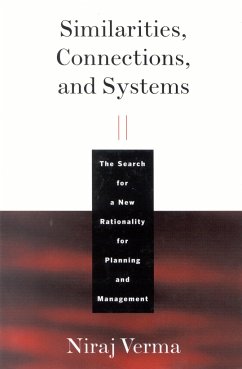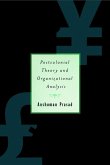Since the early 1970s, the formal model of rational inquiry has come under increasing attack by scholars as well as practitioners in the business management, planning, and policy professions. Yet, despite the attacks, there are few competitors for rationality and no usable alternative has emerged to take its place in the profession. In this groundbreaking work, Niraj Verma -- inspired by the work of pragmatist William James -- proposes a methodology that fuses the rational and the irrational to offer professionals an approach to inquiry that more completely examines all of the factors that impact the planning process in a practical, systematic way. An illuminating blend of philosophy, critique, and down-to-earth examples, Similarities, Connections, and Systems introduces a new, methodologically sound model of inquiry that aptly addresses the shortcomings of other models while remaining sensitive to the goals of professional practice.
In this groundbreaking work, Niraj Verma goes beyond the criticism of rationality to present a bold alternative model of inquiry--a new rationality for the professions. Inspired by the work of pragmatist William Jones, Verma proposes a methodology that fuses the rational and the irrational to offer professionals an approach to inquiry that more completely examines the factors that impact the planning process in a practical, systematic way. The new rationlity is systemic and so values similarities more that differences, connectivity more that fungibility, and purposes and ends more that causes and mechanisms.
In this groundbreaking work, Niraj Verma goes beyond the criticism of rationality to present a bold alternative model of inquiry--a new rationality for the professions. Inspired by the work of pragmatist William Jones, Verma proposes a methodology that fuses the rational and the irrational to offer professionals an approach to inquiry that more completely examines the factors that impact the planning process in a practical, systematic way. The new rationlity is systemic and so values similarities more that differences, connectivity more that fungibility, and purposes and ends more that causes and mechanisms.








